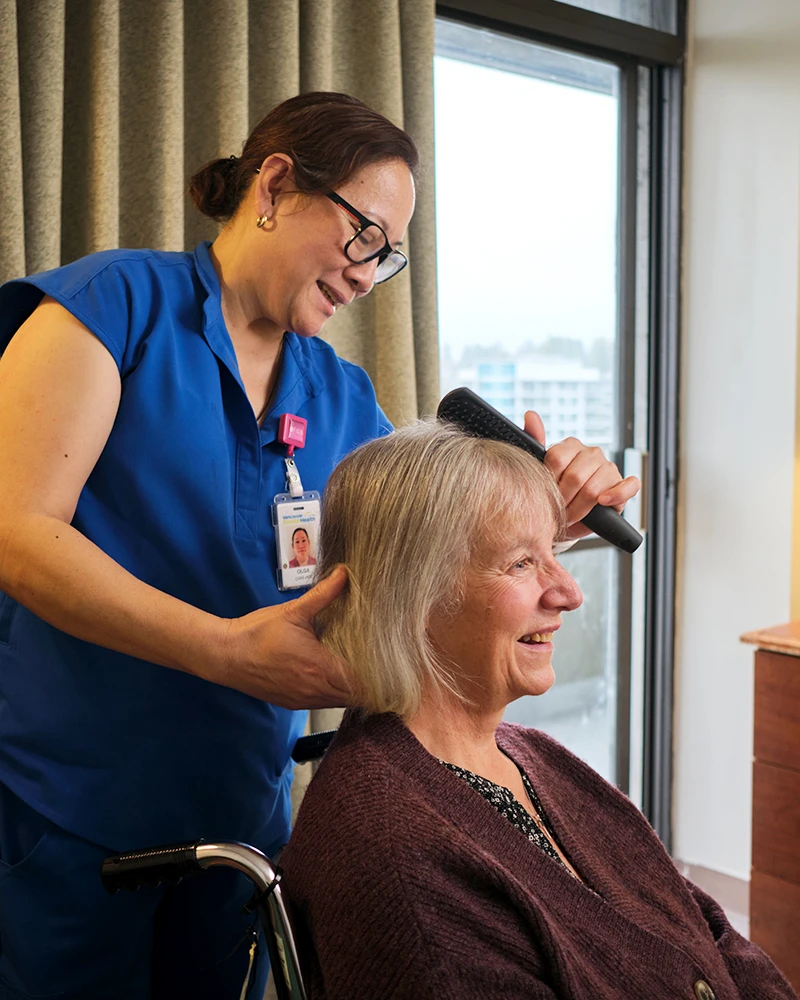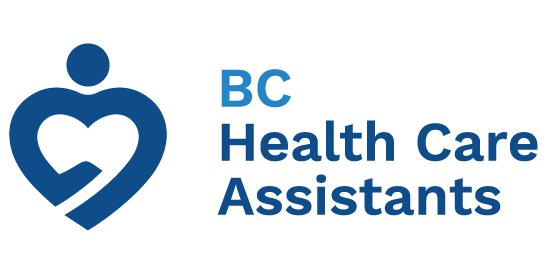What Is a Health Care Assistant?

Health Care Assistants (HCAs) are direct care providers who promote and maintain the health, safety, independence, comfort, and well-being of individuals and their families.
An HCA provides personal care assistance and support to a variety of clients. This includes providing care to older adults, people living with disabilities and/or chronic illnesses, and clients who are receiving palliative care.
HCAs are responsible for assisting clients with their mobility, activities of daily living, and personal care. They observe and monitor their clients, and are responsible for completing records and reporting changes and unsafe conditions to their supervisor. HCAs are supervised by nurses and other regulated health care professionals (e.g., doctors, nurse practitioners).
HCAs may also do other activities related to the plan of care, including light housekeeping tasks or social activities with clients (e.g., reading a book to or playing a game with a client; accompanying a client on an outing).

Choose2Care BC Health Care Assistants
WorkBC Profile: Nurse aides, orderlies and patient associates
Benefits of Becoming a Health Care Assistant
Enjoy a Rewarding Career
Being a Health Care Assistant is a fulfilling profession that matters. You can make a difference every day.
Help Your Community
Work locally to provide person-centred care and assistance to others.
Fill an Important Role
Health Care Assistants are vital direct care providers who work collaboratively with nursing professionals and other health care team members.
Get Started Quickly
You can complete your training, register, and start working as a Health Care Assistant in less than a year.
Job Opportunities
Being a Health Care Assistant is an inspiring career choice, with many options to work in various regions and settings across the province.
Flexible Employment Options
Casual, part-time, or full-time work schedules are available with a variety of flexible options.
General Resources for HCAs
Mental Health & Wellness for Healthcare Workers
Care for Caregivers is a mental health and wellness resource hub for continuing care workers. Whether you’re looking for up to date credible information to ease your mind, a free workshop to learn about resiliency, or quick daily coping tips, it’s all on one website.
Health & Safety
SafeCareBC is a not-for-profit society working to ensure injury-free, safe working conditions for long-term care workers in BC. Their website provides resources for injury prevention and safety training.
WorkSafeBC offers health care injury prevention resources by topic (chemical and physical hazards, dementia, general ergonomics, general safety, infectious disease, patient handling, slips and trips, violence) and by sector (home care, social services).
Violence Prevention
The Provincial Violence Prevention Curriculum (PVPC) was developed in 2010 to fill a need for effective, recommended, and provincially recognized violence prevention education for all British Columbia health care workers across a range of care settings, including affiliate organizations. The PVPC was refined and updated in 2015 to align with trauma-informed practice, dementia care, and pediatric care principles.
WorkSafeBC, Dementia: Understanding Risks and Preventing Violence
This resource provides information about the way clinical care approaches and interventions can prevent or minimize the risk of injury to workers when caring for people with dementia.
General FAQs
What is a Health Care Assistant?
Health Care Assistants (also referred to as HCAs) are direct care providers who are important and respected members of British Columbia’s healthcare team. They play a critical role in helping BC residents receive quality, person-centered care. HCAs provide personal care assistance and services in various healthcare settings, including acute care, assisted living, group homes, continuing care, and community care. Learn more here.
What does a Health Care Assistant do?
A Health Care Assistant provides direct personal care assistance and support to various clients, including older adults, people living with disabilities and/or chronic illnesses, and clients receiving palliative care.
Health Care Assistants provide essential and important daily living support and comfort to patients, clients, and residents. They assist with bathing, grooming, dressing, toileting, and other personal hygiene activities.
HCAs provide personal care to both men and women, and they may help patients/clients with nutrition, mobility, and other daily activities as needed.
Are there other titles that Health Care Assistants are typically referred to as?
Health Care Assistants may have many different titles, such as Care Aides, Resident Care Attendants, Community Health Workers, Home Support Workers, and Patient Care Attendants. No matter what titles are used, Health Care Assistants work with a common goal to provide the highest quality of essential care possible to their clients or residents.
What are some characteristics that I must have to become a good Health Care Assistant?
To work in this field, you should have good interpersonal skills and a caring, compassionate nature. Health Care Assistants typically have a genuine desire to help others.
HCAs require patience and understanding because their clients may have cognitive, mental, or emotional health challenges, in addition to physical limitations.
The ability to handle stressful situations may be needed, with effective communication and good problem-solving skills. HCAs must be efficient and accurate yet sensitive to the needs of clients.
Where do Health Care Assistants work?
Health Care Assistants work in various healthcare settings, including hospitals, continuing care and assisted-living settings, and in the community providing home care.
HCAs work collaboratively with nursing professionals and other members of the overall healthcare team.
What are the differences in the activities of working in a community setting (home support or assisted-living) versus multi-level/complex care (continuing care home) versus acute care (hospital)?
Health Care Assistants working in home support or assisted-living settings support clients who require some assistance to live independently, but may not require 24-hour nursing care. While HCAs working in continuing care homes or hospitals work under the direct supervision of a health care professional, HCAs working in community settings often work more independently. In addition to assisting clients with personal care activities, HCAs working in community settings may perform household management tasks and duties delegated to them by a nurse in accordance with employer policy.
Choose a Career in Providing Care
Site Map
Privacy Policy
Terms Of Use
Contact Us
